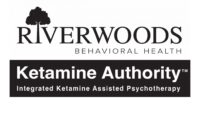
Just as we were exploring the latest advancements in mental health treatments, we stumbled upon the intriguing role of ketamine in aiding recovery from childhood trauma.
We've learned that this once-controversial substance is now being hailed for its potential to revolutionize therapy for those haunted by early adverse experiences. By affecting the brain in ways traditional therapies can't, ketamine offers a beacon of hope where there was previously darkness.
But how exactly does it weave its magic, and what are the implications for integrating it into existing therapy models? Join us as we explore the depths of this promising frontier, and uncover the stories of transformation that lie beneath.
Understanding Childhood Trauma
Childhood trauma, a deeply distressing experience that can profoundly impact a young person's life, encompasses a range of emotional, physical, and psychological events. It's not just about the events themselves but how we, as individuals and a community, understand and address them. These traumas can stem from abuse, neglect, witnessing violence, or enduring the sudden loss of a loved one. They leave scars that often carry into adulthood, affecting relationships, self-esteem, and even physical health.
We've come to recognize that the effects of such trauma aren't just fleeting emotions. They can alter a child's brain development, leading to difficulties in learning, memory, and emotional regulation. This realization pushes us to find effective ways to support those affected, aiming to heal and help them lead fulfilling lives.
Understanding childhood trauma is the first step in this journey. It's about acknowledging the pain, recognizing the symptoms, and realizing the long-term consequences these experiences can have. It's a call to action for us to create a supportive environment that fosters healing and growth. Through knowledge, compassion, and appropriate interventions, we can begin to undo the damage caused by traumatic experiences in childhood.
Basics of Ketamine Therapy
In recent years, ketamine therapy has emerged as a groundbreaking approach in the treatment of various mental health conditions, including those stemming from childhood trauma. Traditionally known as an anesthetic, ketamine's use has expanded due to its potential therapeutic effects. We've seen it administered in several forms, including intravenous infusions, nasal sprays, and oral tablets, making it accessible for different treatment plans.
The process typically starts with a comprehensive evaluation by a healthcare professional. They'll consider the patient's medical history, current mental health status, and specific needs related to their trauma. It's not a one-size-fits-all treatment; dosages and administration methods are tailored to each individual.
Patients usually undergo a series of sessions, often in a controlled clinical setting, where they're closely monitored by medical staff. This ensures safety and allows for adjustments to the treatment plan as needed. We've observed that ketamine therapy can offer rapid symptom relief for some, which is a significant benefit over traditional treatments that may take weeks or months to show effects.
It's important to note, however, that ketamine therapy is part of a broader treatment plan. It's most effective when combined with other therapeutic interventions, such as psychotherapy, to address the root causes of trauma and promote long-term recovery.
Ketamine's Impact on the Brain
Understanding ketamine's impact on the brain is crucial as we explore its role in healing from childhood trauma. This substance, initially known for its use in anesthesia, plays a transformative role in mental health, particularly in the context of trauma recovery. By acting on the brain's neurotransmitters, ketamine notably affects the glutamate system. This system is integral for synaptic plasticity, which is essentially the brain's ability to adapt and learn from experiences.
In cases of childhood trauma, the brain's natural ability to process and recover can be severely hampered, leading to long-lasting psychological effects. Ketamine's interaction with the brain stimulates the glutamate system, fostering an environment where synaptic connections can be reformed more healthily. This process is thought to aid in breaking the cycle of negative thought patterns and behaviors associated with trauma.
Moreover, ketamine has been observed to increase neuroplasticity, the brain's capacity to form new neural connections. This increase in neuroplasticity can provide a window of opportunity for therapeutic interventions to be more effective, enabling individuals to better process and integrate their traumatic experiences in a healing manner.
We're learning that ketamine's effects on the brain could be a key component in unlocking new pathways to recovery for those haunted by the shadows of their childhood.
Therapy Integration Strategies
Having explored ketamine's profound impact on the brain, we now focus on how to effectively integrate this treatment within therapeutic strategies for childhood trauma recovery.
We're discovering that combining ketamine with traditional psychotherapy offers a powerful synergy. This approach allows us to tap into the heightened state of mental plasticity that ketamine induces, making it easier for patients to process and integrate traumatic memories during therapy sessions. We ensure that each session is closely monitored by a team of experienced professionals, providing a safe and supportive environment for healing.
We also emphasize the importance of preparation and follow-up. Before administering ketamine, we prepare our patients by setting therapeutic goals and discussing what to expect. This preparation helps in maximizing the treatment's benefits. Afterward, we engage in integration therapy sessions, where patients can process their experiences under the influence of ketamine, bridging the gap between their subconscious insights and conscious awareness.
Adopting this integrated approach requires careful consideration of each patient's unique background and needs. We're committed to refining our methods, always aiming to enhance the safety and efficacy of ketamine-assisted therapy for childhood trauma recovery.
Patient Experiences and Outcomes
We've observed remarkable transformations in patients undergoing ketamine-enhanced therapy for childhood trauma, marking a significant shift in their recovery journey. Many report a profound sense of relief and clarity shortly after treatment begins, often describing it as a lifting of the emotional fog that's clouded their lives for years. It's as if ketamine opens a door that's been stubbornly stuck, allowing therapeutic interventions to reach deeper, more effectively.
Our patients' stories are powerful. One recounted how, for the first time, they could talk about their trauma without being overwhelmed by emotion. Another shared the experience of reconnecting with lost parts of themselves, reigniting passions and interests that trauma had extinguished. These aren't isolated incidents but rather a consistent pattern we're seeing.
Critically, these outcomes aren't just about feeling better in the moment. We're witnessing sustained improvements in mental health, relationships, and overall quality of life. Patients often express a newfound optimism, a belief in possibilities that seemed out of reach before.
It's clear that for many, ketamine-assisted therapy represents a turning point. While it's not a universal solution, its role in facilitating recovery for some of our most challenging cases can't be understated.
Frequently Asked Questions
How Does the Legal Status of Ketamine Affect Its Accessibility for Childhood Trauma Recovery Treatments?
We're exploring how ketamine's legal status influences its availability for treatments, especially considering its potential benefits.
Since it's strictly regulated in many places, accessing it for therapeutic purposes can be quite challenging. This regulation impacts how readily we can include it in recovery programs, despite its promising effects.
We're constantly navigating these legal barriers, aiming to provide the most effective treatments while adhering to the current legal framework.
What Are the Ethical Considerations in Administering Ketamine to Minors for Trauma Recovery?
We're diving into the ethical concerns of administering a powerful substance to minors for trauma recovery. It's a complex issue, balancing potential benefits against risks and long-term effects.
We're considering the minors' capacity to consent, the possible side effects, and the need for stringent guidelines to protect them. It's crucial to weigh these considerations carefully to ensure we're acting in the best interests of those we're aiming to help.
How Does Ketamine Treatment for Childhood Trauma Compare in Cost to Traditional Therapy Methods?
We're exploring how the cost of ketamine treatment stacks up against traditional therapy for addressing trauma. It's a crucial comparison, as we're always looking for effective, yet financially accessible, options for those in need.
Can Ketamine Therapy for Childhood Trauma Lead to Dependency or Misuse, and How Is This Risk Managed?
We're exploring if ketamine therapy can cause dependency or misuse and how these risks are handled. It's a concern we take seriously, understanding that any treatment carries its set of risks.
We're looking into strategies to minimize these dangers, including strict monitoring and guidelines for use. It's crucial to balance the potential benefits with the risks, ensuring we're providing safe and effective care for those who need it most.
Are There Any Long-Term Studies on the Effects of Ketamine Therapy in Childhood Trauma Survivors Into Adulthood?
We're currently exploring whether there are any long-term studies on the effects of ketamine therapy in those who've survived childhood trauma into adulthood.
It's crucial for us to understand how this treatment impacts individuals over time.
We're curious about both the positive outcomes and any potential risks.
Managing these risks effectively is key to ensuring the safety and well-being of those who might benefit from such treatments.
Conclusion
In concluding, we've seen how ketamine, when integrated with therapy, offers a promising path for those recovering from childhood trauma. It's not just about the changes in the brain but about how these changes enable patients to process trauma differently.
Our journey through patient experiences and outcomes highlights the transformative potential of ketamine therapy. It's clear that, with the right approach, ketamine can play a crucial role in healing and hope for a brighter, trauma-informed future.

